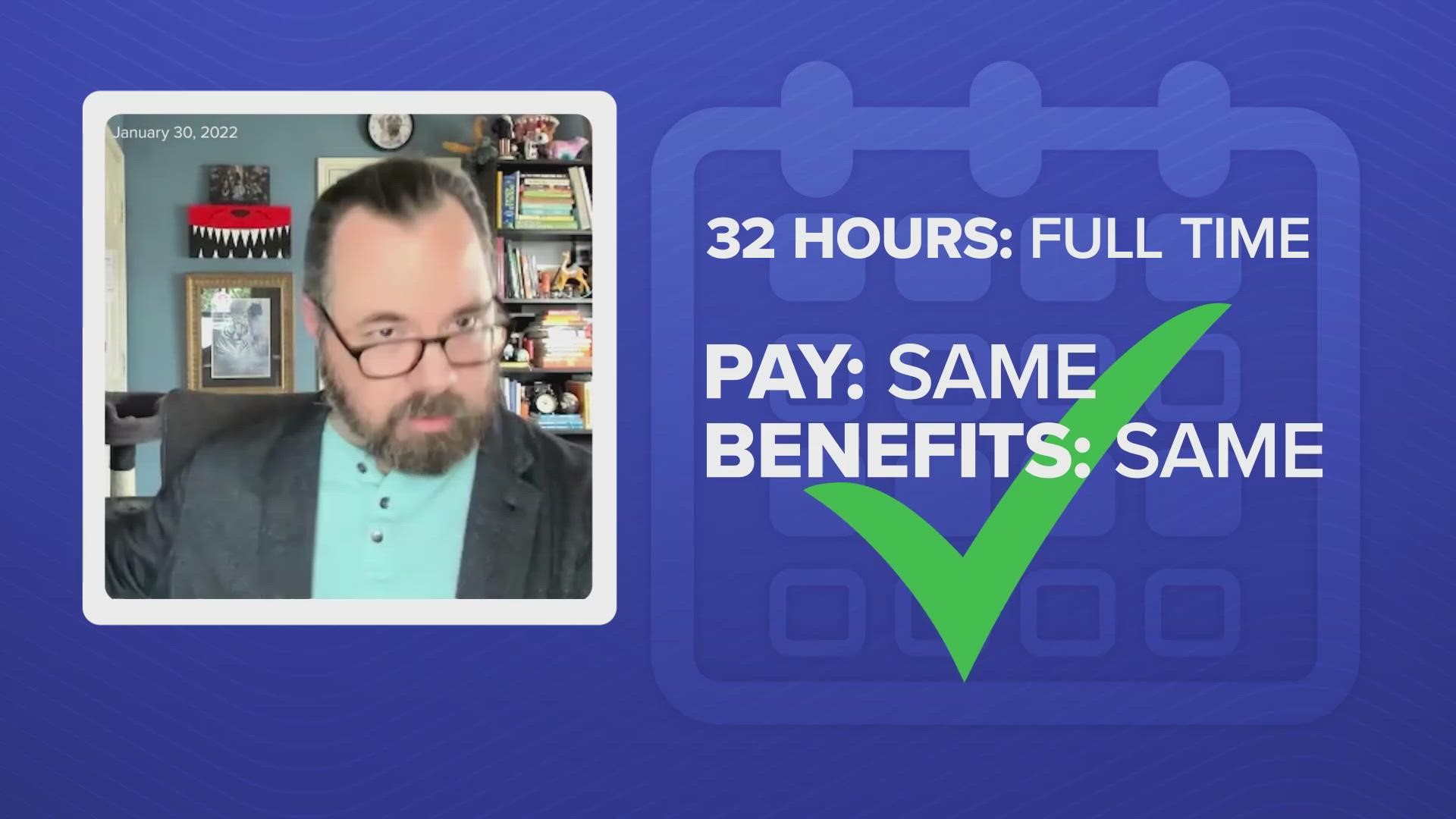DENTON, Texas — One year ago, WFAA introduced you to Josh Berthume who took his 12-person Denton advertising firm Swash Labs to a 4-day workweek.
After that, other reporters called to interview him, and academics have been calling to study his workplace model. The story got a lot of views and likes.
Surprisingly, it also received some hate on social media.
Berthume said most of the reaction to his advocacy for the 4-day workweek was overwhelmingly positive, but that some people who commented were negative and skeptical about the moves his business made.
“It was striking to me how negatively people would respond to something like that," he said.
The people who were trolling on social media couldn’t believe a company would really reduce a workweek with no strings. They angrily wondered aloud on social media platforms whether Swash Labs was making employees work longer days in exchange for fewer days, or whether the company had cut employee pay or benefits as a tradeoff.
So, to be clear, Bethume stresses, “We work a 32-hour week. And we made that change without any reduction in pay or benefits for anyone.”
One year later…
A year after WFAA checked in with Berthume about the big change, he has great news to report: “Not only did our productivity increase, but last year was the best year we've ever had."
The company has thrived, but what is the bottom line for employees? Well, Berthume said, that since they work four days each week, and since there is no commute because they are fully remote, he calculates, “We've essentially given our employees 28 days over the course of a year… like full days."
Berthume said it has made a palpable difference in morale.
“I’m seeing it in my people. And if you think about the way a normal workweek goes, there is a drag at the beginning and drag at the end. And… if it's not burnout, it is exhaustion just from dealing with the structure of a job where you work 40, 50, 60 hours a week," Bethume said.
"And then you've got to also have a life. You've got to be a whole human being outside of work. The response from the people that work at Swash Labs has been like I have time to do these other things.”
After his story aired last year, Berthume heard from many people who wanted to come work for him. He said it wasn’t just because of a remote 4-day workweek sounds like paradise.
Full interview:
“A lot of them were the problems laid bare: ‘I need to work, and my husband needs to work, and we can't afford childcare’. Or ‘I want to work and I'm talented and I can do this, and I need to work remotely because I don't have a car’," said Berthume.
The thing is, Berthume didn’t have room to bring people onboard because he says Swash Labs didn’t experience the "Great Resignation".
“Our turnover rate is almost zero," he said.
The biggest challenge and the ‘unintended bonus’
Even though Berthume is thrilled with how it has all worked out, he said there were big challenges when removing one day per week from each employee’s schedule. Some employees get Saturday through Monday off and others get Friday through Sunday, the biggest hurdle appeared Tuesday through Thursday.
Since everyone was working those days in the middle of the week, the three days became meeting intensive.
But that problem opened up a whole new way of thinking.
“It forced us into the position to think… does everybody need to be in this meeting that we've sort of gotten in the habit of having? And does it need to be this long? And do our default meetings need to be an hour? Or could they be half an hour? And these meetings that we know are half an hour, could we boil those down to 15 minutes?
Berthume said giving thoughtful consideration to all of that has helped reduce and expedite meetings, creating new efficiencies.
Some other companies have been seriously re-thinking the value of meetings, too. We’ll see how people react to Berthume’s latest workplace target.


